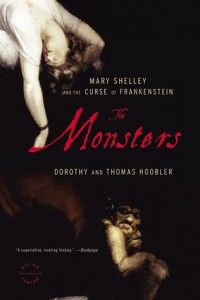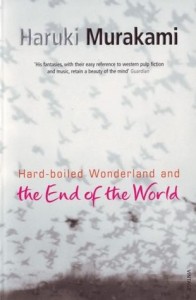 I had so much fun doing Top Ten Tuesday last week that I thought I would join in again. Top Ten Tuesday is a book blogger meme that is hosted by The Broke and the Bookish and this week the theme is: Top Ten Best/Worst Movie Adaptations. I want to look at ten books that should have never been made into movies because they never work and never will work in this particular format. These are mainly books that have a strong internal monologue, the emotions and inner turmoil is vital to the book and/or they are too many narrators to really work.
I had so much fun doing Top Ten Tuesday last week that I thought I would join in again. Top Ten Tuesday is a book blogger meme that is hosted by The Broke and the Bookish and this week the theme is: Top Ten Best/Worst Movie Adaptations. I want to look at ten books that should have never been made into movies because they never work and never will work in this particular format. These are mainly books that have a strong internal monologue, the emotions and inner turmoil is vital to the book and/or they are too many narrators to really work.
10. The Hitchhikers Guide to the Galaxy by Douglas Adams
There was a mini-series that wasn’t too bad but the latest attempt at adapting this movie was so bad. I’m a fan of Zooey Deschanel, Martin Freeman, Bill Nighy, Stephen Fry and John Malkovich but no one could save this movie.
9. Pride and Prejudice by Jane Austen
I’m sorry but the 2005 film just doesn’t work for me, there is none of Austen’s wit and only really covers the basic story. I only recently read Pride and Prejudice and adored it but most of the things I love about this book don’t translate to film.
8. Dune by Frank Herbert
David Lynch was faced with the impossible task of turning this seminal sci-fi classic into a movie and he failed, hard.
7. Catch 22 by Joseph Heller
One of those movies, I wish I could unsee. The book was so great, why would they destroy that with a film adaption?
6. Anna Karenina by Leo Tolstoy
The most recent adaptation was a horrible, horrible adaptation of such a wonderful book. It was weird how they did the movie and they left so much out. I’m not a fan of Keira Knightley so I was looking forward to the end. I’ve not seen any of the other adaptations of this classic and I never want to see them.
5. The Great Gatsby by F. Scott Fitzgerald
I keep meaning to write about the Baz Luhrmann version but keep putting it off. This is a book about unlikeable characters and symbolism, and that never worked. To be honest I don’t think Baz read the book and just tried to remake the old Robert Redford movie.
4. Dracula by Bram Stoker
I’ve never seen a Dracula movie that actually works, it’s hard to be faithful to Bram Stoker’s seminal piece of literature and still try to adapt it.
3. The Scarlet Letter by Nathaniel Hawthorne
I’m looking at you Demi Moore, Gary Oldman, and Robert Duvall. It doesn’t work and it shouldn’t be tried again. Try something like a modern retelling like Easy A, it’s not The Scarlet Letter but at least it works.
2. Crime and Punishment by Fyodor Dostoyevsky
Most of this novel plays out in the mind of Rodion Raskolnikov; mental anguish and moral dilemmas don’t translate on the screen, I never have watched a Crime and Punishment adaptation and I don’t think I ever will.
1. Frankenstein by Mary Shelley
No, just stop it, you will never get it right in a movie, you can’t tell both Victor and Monster Frankenstein’s story at the same time and explore their thoughts and emotion on the screen. Stop trying to ruin my favourite book.


 Title: The Strange Case of Dr. Jekyll and Mr. Hyde (
Title: The Strange Case of Dr. Jekyll and Mr. Hyde ( Title: The Monsters (
Title: The Monsters ( Title: Hard-Boiled Wonderland and the End of the World (
Title: Hard-Boiled Wonderland and the End of the World ( Title: A Treacherous Likeness (
Title: A Treacherous Likeness ( Title: The Marriage Plot (
Title: The Marriage Plot ( One of my favourite bookish podcasts is The Readers; if you haven’t heard it before go and subscribe, it offers random book-based banter which has been both enjoyable to listen to and offers some interesting ideas for future blog posts. This post is inspired by the latest episode about the “
One of my favourite bookish podcasts is The Readers; if you haven’t heard it before go and subscribe, it offers random book-based banter which has been both enjoyable to listen to and offers some interesting ideas for future blog posts. This post is inspired by the latest episode about the “ Title: This Dark Endeavour (
Title: This Dark Endeavour (